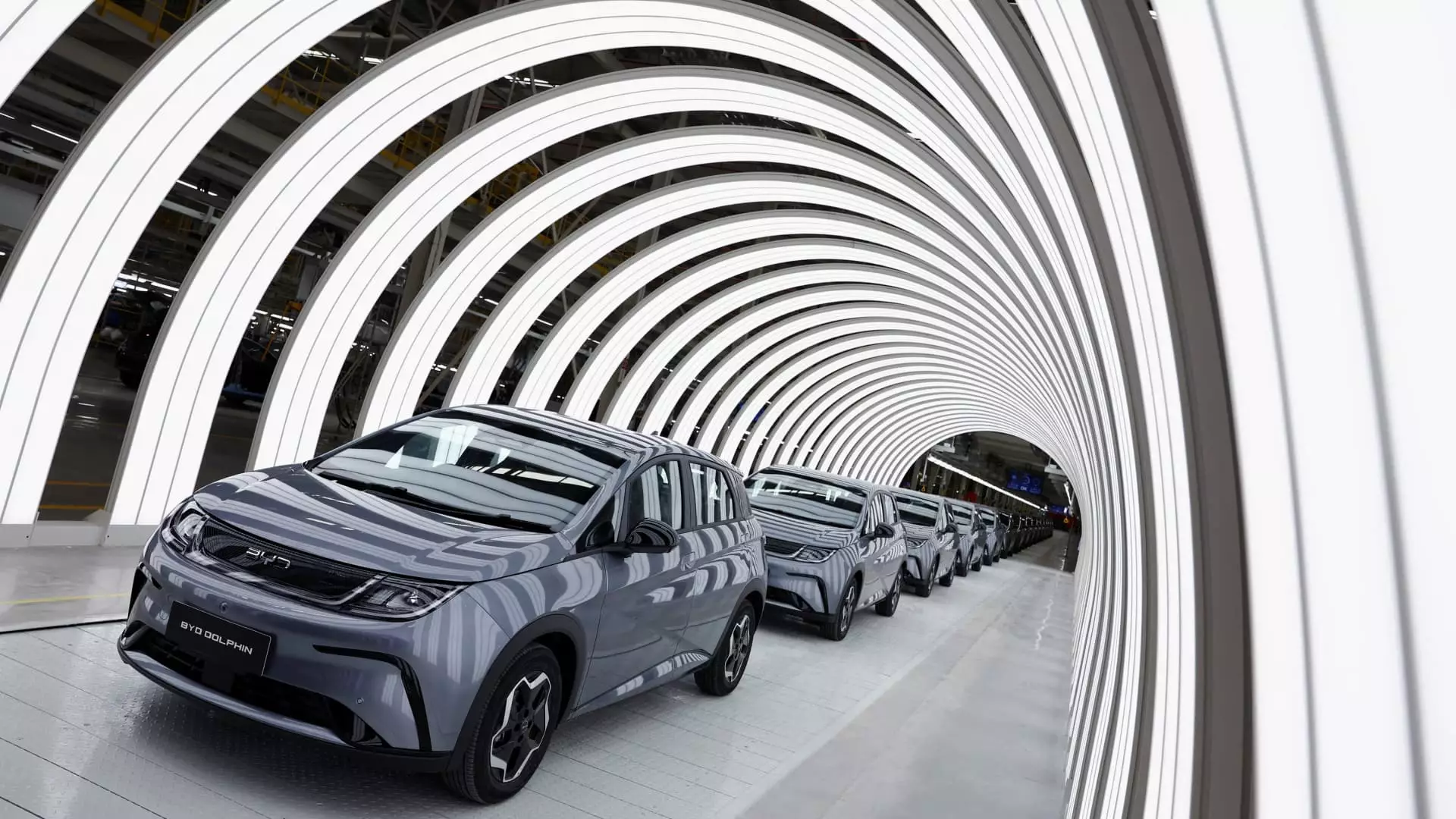The electric vehicle (EV) landscape is undergoing a significant transformation, with companies striving to enhance the driving experience through innovative technologies. A recent development involving China’s electric car manufacturer BYD (Build Your Dreams) has set the stage for a new era in driver-assistance systems, which could have cascading effects across the automotive supply chain. This article examines the strategic moves by BYD in unveiling its advanced driver-assistance capabilities, the expected impact on its suppliers, and the broader implications for the competitive landscape within the EV market.
BYD has recently made headlines with the launch of an advanced driver-assistance system tailored for a range of its vehicles. Notably, one variant is priced attractively below the 70,000 yuan mark (approximately $9,600), aiming to democratize access to smart driving technologies. This initiative underscores BYD’s commitment to enhancing its vehicle offerings at competitive price points, which is especially critical in the fiercely competitive landscape of electric vehicles in China.
Moreover, BYD has partnered with DeepSeek to incorporate advanced artificial intelligence functionalities into its systems. This integration exemplifies a trend where automakers not only seek to improve operational efficiencies but also enhance the user experience through intelligent features. As the market shifts towards smart vehicle technology, BYD’s proactive approach positions it favorably, potentially elevating its brand visibility and consumer appeal.
According to analysts from Nomura, the unveiling of BYD’s advanced driver-assistance systems is expected to benefit its suppliers significantly. In a thoughtful analysis, they pointed out that the demand for components associated with smart driving technologies is likely to surge as automakers scramble to modernize their fleets to remain competitive. This anticipated increase in demand could have a ripple effect through the automotive supply chain, particularly for companies that manufacture components critical to these driver-assistance systems.
Suppliers such as BYD Electronics, which focuses on autonomous driving parts, and chip manufacturers like Horizon Robotics, stand to gain from BYD’s initiatives. These companies are seen as integral players in the landscape of smart driving technologies. The rise of demand for essential components like semiconductors and advanced sensors aligns with the broader market trend toward automation and electric mobility.
The competitive tension between BYD and established players like Tesla is a critical aspect of this development. Tesla’s struggles with obtaining regulatory approval for its Full Self-Driving technology in China have left a gap that BYD appears ready to fill. The advent of BYD’s driver-assist features adds pressure on Tesla and other global automakers to accelerate their own advancements in smart driving technology, particularly for their budget-friendly vehicle segments.
As the Chinese government seeks to bolster domestic technological prowess amid geopolitical tensions, BYD’s local focus indicates a strategic alignment with national goals. The emphasis on domestic suppliers such as Horizon Robotics, known for its cutting-edge smart driving chips, further strengthens BYD’s position while potentially isolating foreign competitors from key market opportunities.
Investment analysts are bullish on the prospects of both BYD and its key suppliers, forecasting substantial growth in their respective markets. For instance, Goldman Sachs analysts have raised projections for Horizon Robotics, citing promising expectations related to its Journey 6 chipsets. With anticipated growth from contributing just 3% of revenue this year to an impressive 40% by 2027, it’s evident that smart driving technology is expected to drive both innovation and profitability.
BYD’s ambitious projections, with over 3 million vehicles set to incorporate its advanced driver-assistance technologies, indicate a clear roadmap for revenue expansion. Furthermore, the report mentions that as these systems typically carry a higher price tag compared to standard components, there is an expectation for increased per-unit sales revenue for manufacturers like BYD Electronics.
The strategic moves by BYD underscore a broader industry trend towards enhanced driver-assistance technologies, which are rapidly becoming essential features in modern vehicles. As suppliers gear up for increased demand and automakers race to innovate, the competitive dynamics of the EV market are undergoing dramatic shifts. BYD’s focus on affordability combined with advanced technology not only places it at the forefront of China’s electric vehicle market but also sets a precedent that may influence global automotive trends. As the dust settles from this latest development, it remains to be seen how competitors will respond, and how these shifts will reshape the future of mobility in the coming years.

